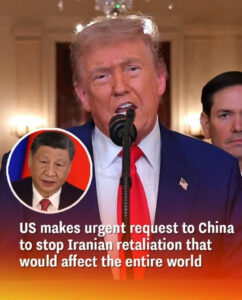Global Economic Crisis Looms as U.S. Seeks China’s Intervention to Prevent Iranian Strait of Hormuz Closure
Critical Maritime Chokepoint Threatens World Energy Security Following Operation Midnight Hammer
The international community faces a potential economic catastrophe as Iran contemplates closing the Strait of Hormuz in retaliation for recent U.S. military strikes on Iranian nuclear facilities. The United States has made an urgent diplomatic appeal to China, requesting Beijing’s intervention to prevent Iran from shutting down this critical maritime passage that serves as the lifeline for global energy supplies.
Strategic Significance of the Strait of Hormuz
The Strait of Hormuz represents one of the world’s most strategically important waterways, serving as the sole maritime passage connecting the Persian Gulf to international waters. This narrow 21-mile channel between Iran and Oman has earned recognition as the most critical chokepoint for global energy transportation, with approximately 20 percent of the world’s oil and natural gas supplies transiting through its waters daily.
The strategic importance of this waterway cannot be overstated, particularly given that nearly half of the world’s proven oil reserves are concentrated in the Middle East, primarily in Saudi Arabia and Iran. Any disruption to oil movement through the Strait of Hormuz would create immediate ripple effects across international energy markets, potentially triggering a global economic crisis comparable to or exceeding previous oil shocks that have historically destabilized world economies.
The geographical positioning of the strait places Iran in a unique position of leverage, as the country controls the northern coastline and possesses the military capability to effectively close the passage to commercial shipping. This strategic advantage has long been recognized by Iranian leadership as a powerful deterrent against foreign military action and a potential retaliation mechanism in times of conflict.
